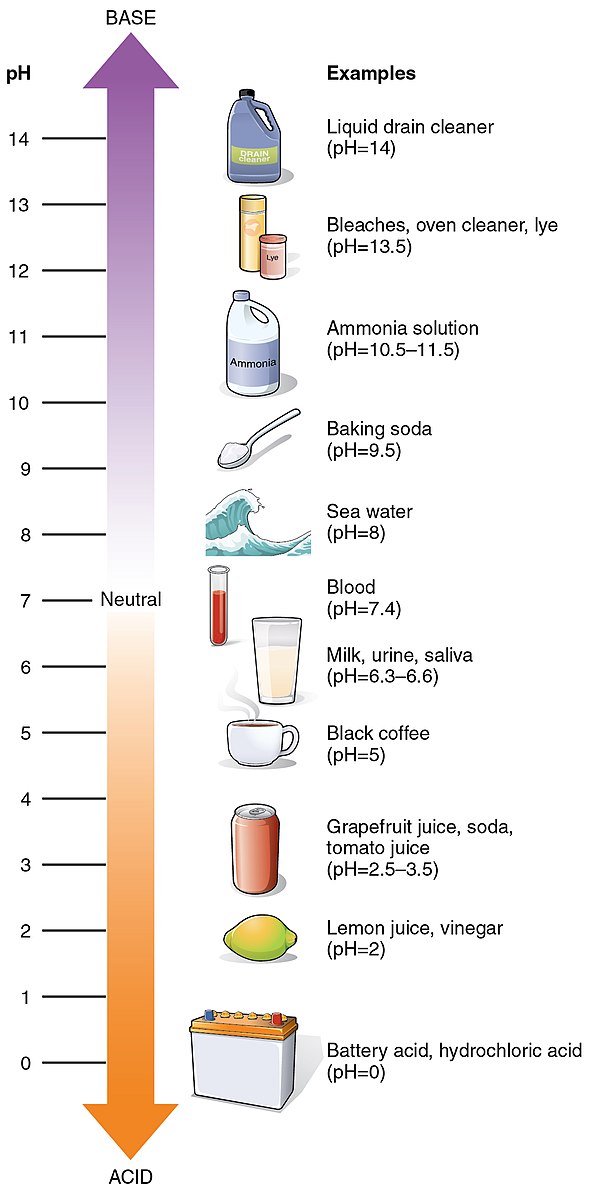Temperature does affect the pH of coffee, but not in the way one might initially think. Chemically, the pH of a liquid decreases as the temperature increases, meaning that hotter coffee would be more acidic. However, in the context of coffee brewing, temperature plays a more nuanced role in shaping the flavor profile of the final beverage, including its acidity.
The Impact of Roasting Temperatures on Coffee Acidity
Coffee roasting temperatures have a significant impact on the acidity of the final brew. A study by Koffee Kult found that higher roasting temperatures resulted in lower acidity levels in the coffee. Specifically, the roast at 500 degrees had the least acidity, with an average pH of 6.64, which is close to neutral on the pH scale. This is because the roasting process breaks down acidic compounds in the coffee beans, reducing their overall acidity.
The Role of Water Temperature in Coffee Brewing
 Image source: OpenStax College
Image source: OpenStax College
Water temperature also plays a crucial role in coffee brewing and can influence the final pH of the brew. According to the National Coffee Association, the ideal water temperature for extraction is between 195°F and 205°F. Brewing at temperatures outside this range can lead to under- or over-extraction, which can affect the pH and flavor profile of the coffee. For example, under-extraction can cause a sour taste and lack of body, while over-extraction can make the coffee taste too bitter, which can also affect its pH.
Other Factors Affecting Coffee pH
Contaminants, chemicals, and substances present in coffee can also affect its pH. For instance, dissolved minerals in hot tap water can change the flavor of coffee, and some coffee roasters recommend using filtered water to avoid this. Additionally, antioxidants in coffee can influence its pH, with hot brewed coffee having higher antioxidant activity and higher acidity than cold brew coffee.
Balancing the pH of Coffee
To balance the pH of coffee and improve its flavor, it’s essential to control the roasting and brewing temperatures and use high-quality water. For those who prefer a more acidic coffee, a lighter roast brewed at a slightly higher temperature may be appropriate. Conversely, for those who prefer a less acidic coffee, a darker roast brewed at a lower temperature may be more suitable. In either case, using a thermometer to measure the water temperature and ensuring that the coffee is brewed within the ideal temperature range can help achieve the desired flavor profile and pH level.
Conclusion
In summary, temperature does affect the pH of coffee, but it’s just one of many factors that can influence the final flavor profile of the beverage. By controlling roasting and brewing temperatures, using high-quality water, and being mindful of contaminants and chemicals present in coffee, it’s possible to achieve a balanced and delicious cup of coffee that meets personal preferences and pH levels.
References:
– Does the temperature affect the pH of coffee? – Quora
– Where does water temperature come into play? – Reddit
– How Do Roasting Temperatures Affect the Acidity of Coffee – Koffee Kult
– Cold brew coffee vs. hot brew: does brewing temperature influence health benefits? – Sciworthy
– Water and Coffee: Understanding How Temperature Affects Your Cup – Coffeebean.com
– Fast cooling = More acidity? – Home-Barista.com
